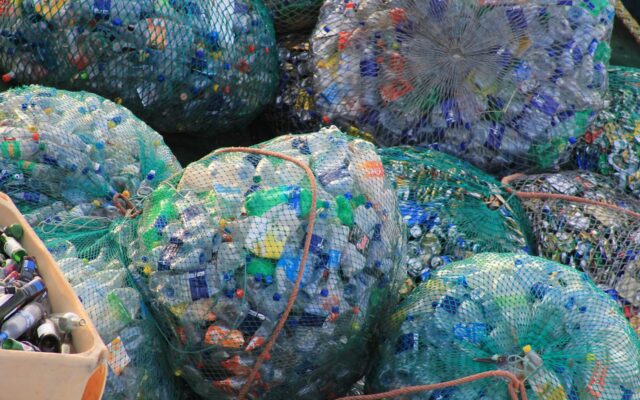
How Different Kinds of Plastic Are Recycled
Used variously for bottles, containers, electronic gadgets and baby products, plastic is versatile as it is recyclable. If you’ve ever wondered about the different types of plastic and the products that they end up becoming after the plastic recycling process, keep reading!
PET (Polyethylene Terephthalate)
Initially used in 1940, PET plastics are often used for bottles, food and meal containers, and other everyday containers such as mouthwash. While PET plastics are generally considered to be safe, they can become toxic if exposed to heat for a long enough time. This is because antimony, a semi-metal, will eventually leak out into the liquid.
PET plastics are easily recyclable, so most recycling plants and stations accept them, making disposing off them safely very easy.
What do PET plastics become? PET plastics tend to be recycled into carpet, furniture, and even technical fibres for winter garments!
HDPE (High Density Polyethylene)
HDPE was first created in the 1950s by Karl Ziegler and Erhard Holzkamp. It is the most commonly recycled type of plastic and is generally considered safe to be used with food. Due to its chemical structure, HDPE is more resilient than PET, making it much safer for reuse. HDPE tends to be used for things like yoghurt pots, containers for cleaning products, and toiletry product containers.
What do HDPE plastics become? HDPE plastics can be recycled into all kinds of things, including: pens, plastic fencing, picnic tables and bottles.
PVC (Polyvinyl Chloride)
One of the oldest kinds of plastic, PVC was actually discovered in 1838. While it starts out life fairly inflexible, it becomes much more malleable once plasticisers have been added. PVC is often found in credit cards, food wrapping and homeware products such as tiles, flooring and even piping. Due to the harmful chemicals contained by PVC plastic and the number of different medical issues it’s linked to, such as liver disease, PVC is rarely recycled.
What do PVC plastics become? While PVC is rarely recycled, there are specialist programmes which turn PVC into flooring, panelling and roadside guttering.
LDPE (Low-density Polyethylene)
Structurally, LDPE is a very simple plastic, which makes it easy to produce on a mass scale. It’s also a very safe plastic, which is why it’s often used for many different kinds of bags, as well as household items such as frozen food containers and squeezy bottles.
What do LDPE plastics become? Despite its safeness, LDPE plastics are actually quite difficult to recycle, but more and more programmes are being introduced to ensure that it is. LDPE plastics will often become: flooring, bubble wrap, plastic panelling and rubbish bins.
PP (Polypropylene)
PP is a robust plastic that can withstand very high temperatures. It’s a safe plastic too, which is why it’s often used in a variety of applications from tupperware to car parts to disposable nappies.
What do PP plastics become? Unfortunately, PP plastics are often thrown away, but they can be recycled into things such as pallets, ice scrapers, rakes and battery cables, to name a few.
PS (Polystyrene)
Recognisable by its white, flakey appearance, polystyrene is one of the most widely-used plastics. It’s often used for drinks cups, egg cartons, insulation and plastic packaging, and is very cheap and easy to produce.
What do PS plastics become? Unfortunately, PS can produce harmful chemicals and can be a little tricky to recycle, meaning it’s too often thrown away. However, when it is recycled, PS will be turned into insulation and even license plate framing.
Based in Stoke-on-Trent, Brown Recycling are one of the leading recycling companies in the area. Whether you’re a domestic customer looking to hire a skip for a home improvement project, or a commercial customer who would like to apply for regular waste collection, we take the headache out of waste management so you can focus on more important things. Interested? Get in touch.
This website uses cookies to enhance your browsing experience and deliver personalised ads. By clicking “Accept All Cookies”, you agree to the storing of cookies on your device to enhance site navigation, analyse site usage, and assist in our marketing efforts.




